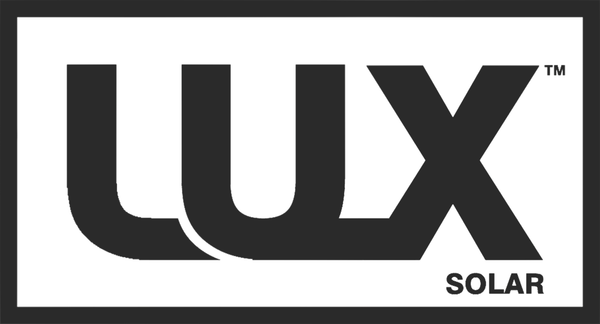FAQ
At Lux Solar, our mission is to give all New Zealanders the power to be free, whether it be with a caravan, boat, yacht, tent or cabin in the woods. We care about solar system design & efficiency and have done all the work for you with our pre-designed solar kits.
How much solar do I need?
It depends on what you want to run! Enter the wattages of the appliances you want to run in our LUX Solar Calculator, which will calculate a ballpark minimum solar wattage and battery size that will work for you. Less sunny spots / running in winter tend to require a bit more, sunnier regions / running mostly in summer require a bit less.
How large are your panels that come with the kits?
All panels that come with kits are detailed on our panel product page - dimensions and other details are in each product description.
Do I wire my kit in parallel or series?
Most kits we supply are in series. If you wish to wire in parallel, you will need to buy a parallel connection kit.
Should I install my panels in parallel or series?
Generally we recommend installing solar panels in series. You could install in parallel to meet the specifications of your MPPT controller for larger wattage installations.
Should I get a Fixed or a Flexi Panel?
We strongly recommend getting fixed panels if you can - they are cheaper and last longer. However our Sunman eArc® panels are one of the most reliable flexi panels on the market. They are certified to all the same industry standards as framed panels and are perfect for marine solar applications.
Sunman panels are the only flexible solar panels approved by the clean energy council of Australia for mounting on a building.
Do your kits come with installation instructions?
All kits come with a LUX Solar DYI installation manual, or we can install if for you (Auckland only) for $650. If you have any questions about the installation please feel free to contact us at info@luxsolar.co.nz or 0274589674. We're always happy to help.
Should I buy two small panels or one big panel?
Doesn’t matter – do what fits your roof / installation space.
Will my pre-existing battery work with your solar kits?
Use our solar calculator to figure out the optimal battery size for our DIY-installable Solar kits.
Why do your kits include circuit breakers / fuses?
In many cases, these are a legal requirement for solar systems. Most importantly, circuit breakers protect your system (specifically cabling) from catching on fire.
What warranty do you offer?
For our solar kits, the warranty is associated with the individual components, which you can see on our product pages. For fixed solar panels we offer 10 year mechanical warranty stationary, 5 year marine and RV warranty and 25 year power warranty 80%.
Can I visit your showroom and talk to someone?
Our "showroom" in Panmure, Auckland is more of a packing depot as our store is mostly an online store. However, if you would really like to talk to someone in-person and view our products, contact us on 0274589674 to make sure someone will be at the premise to help you out.
Do you accept WINZ Quotes?
Yes. LUX Solar is an accreddited WINZ supplier. If you wish to purchase through WINZ please provide your case manager with our WINZ details: LUX Solar Limited CUR002738945
Do you accept TIE GST Exemptions?
Yes. If you have a TIE exemption and wish to purchase GST-Free from LUX Solar (NZ Goods and Services tax is 15%), please email info@luxsolar.co.nz with a copy of your customs TIE exemption and a list of the items you wish to buy from LUX Solar (or a screenshot of your online shopping "cart"). We will email you back an invoice for the items, without GST charged, which you can pay online via credit card or bank transfer.
Electrical Safety
We always recommend a competent installer to get the best out of your system. For information on what system can be DIY installed or not installed by an electrician, please refer to the work safe page.
Below are extracts from the work safe website
"When a PV system operates entirely at ELV the work on that system will still have to be installed to comply with the standards AS/NZS 3000 and AS/NZS 5033; however the work will not be PEW, therefore will not require certification or an inspection."
"[3] Extra-low voltage means any voltage normally not exceeding 50 volts AC or 120 volts ripple-free DC. "
